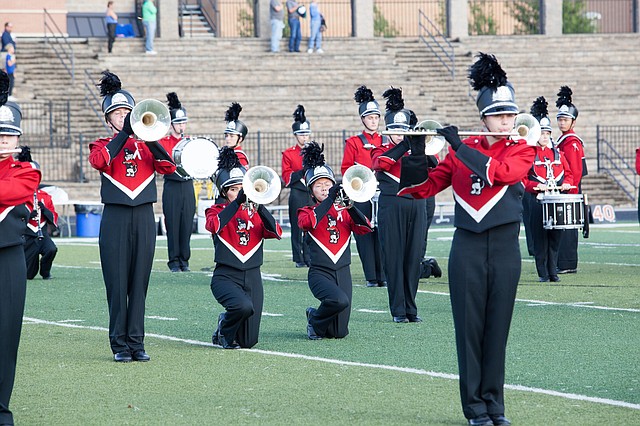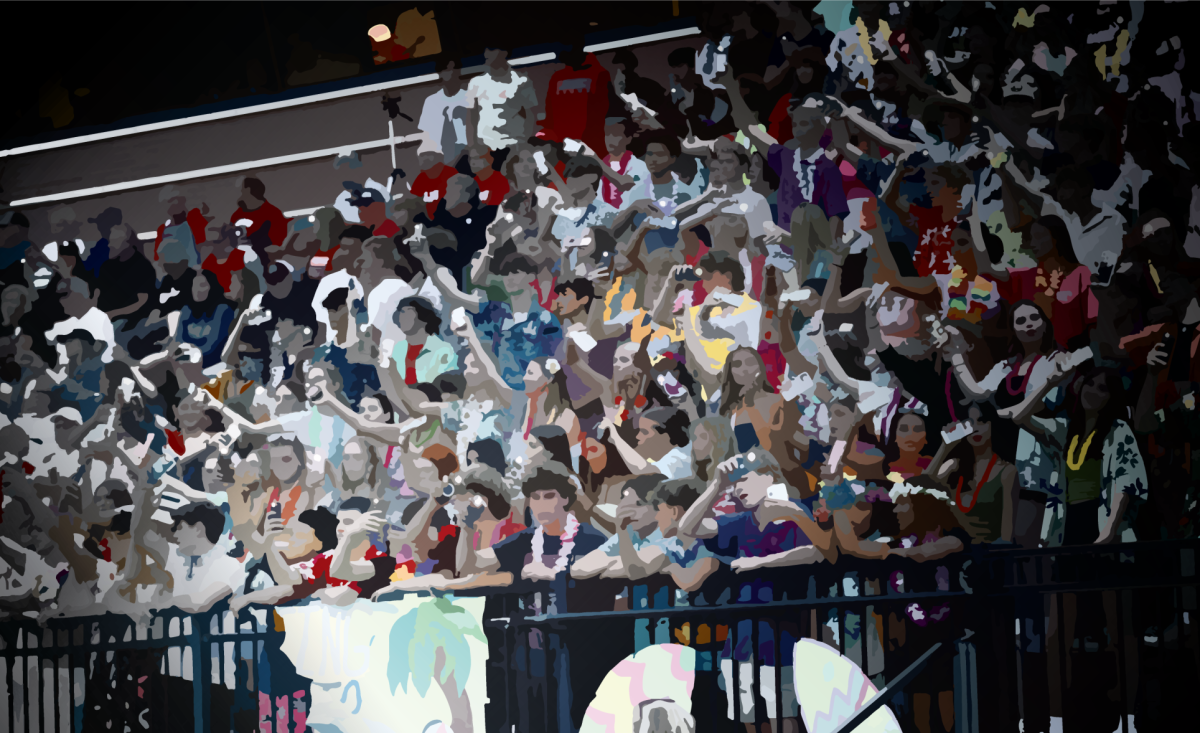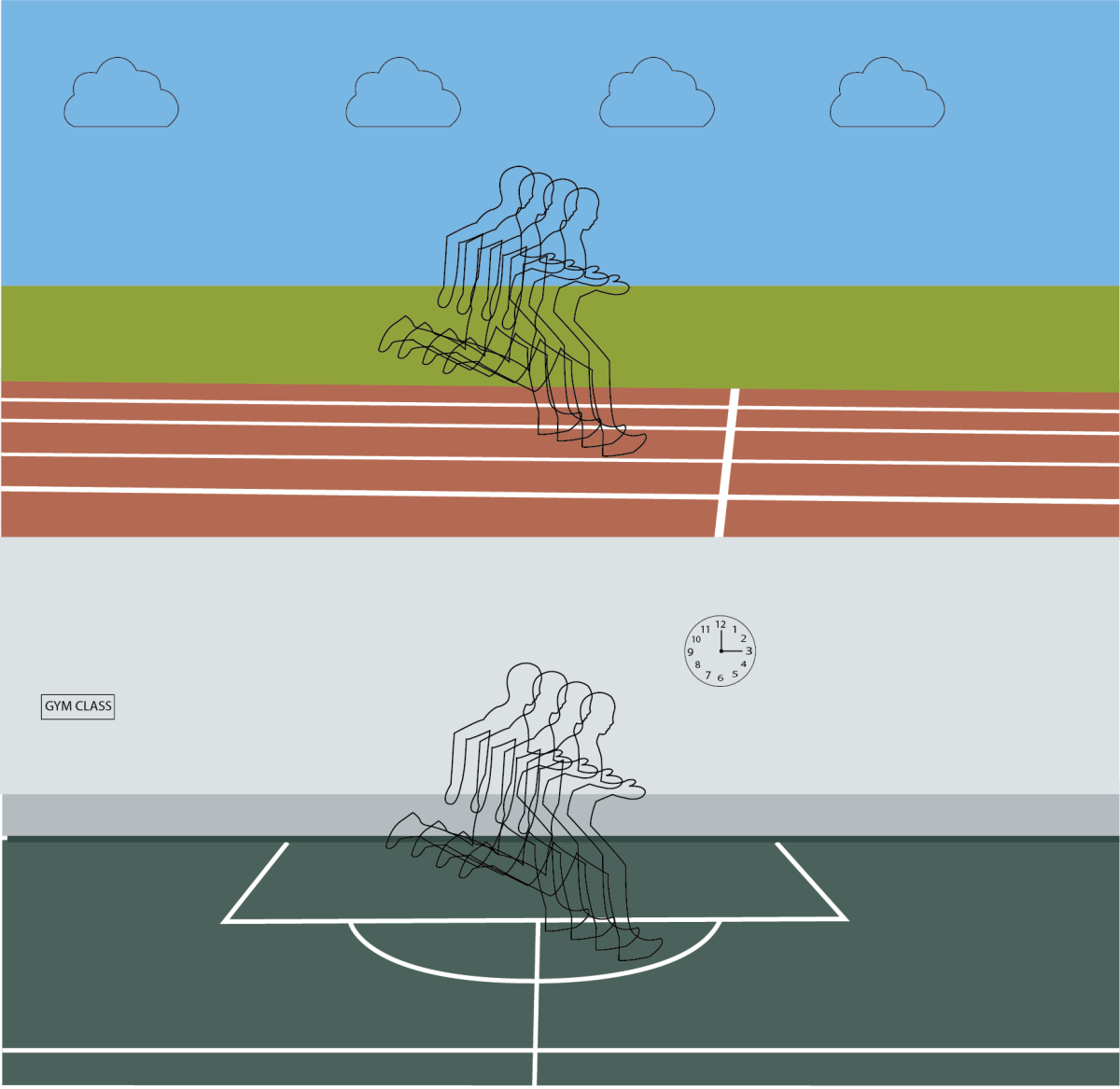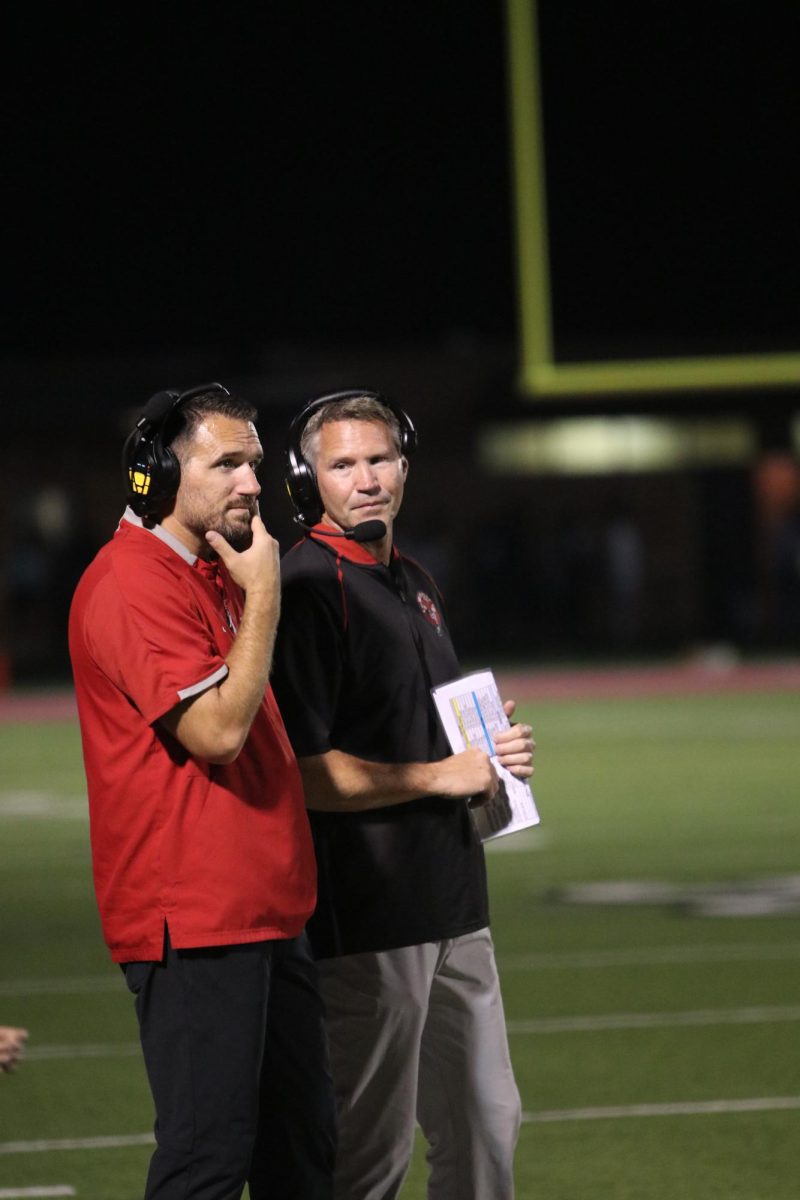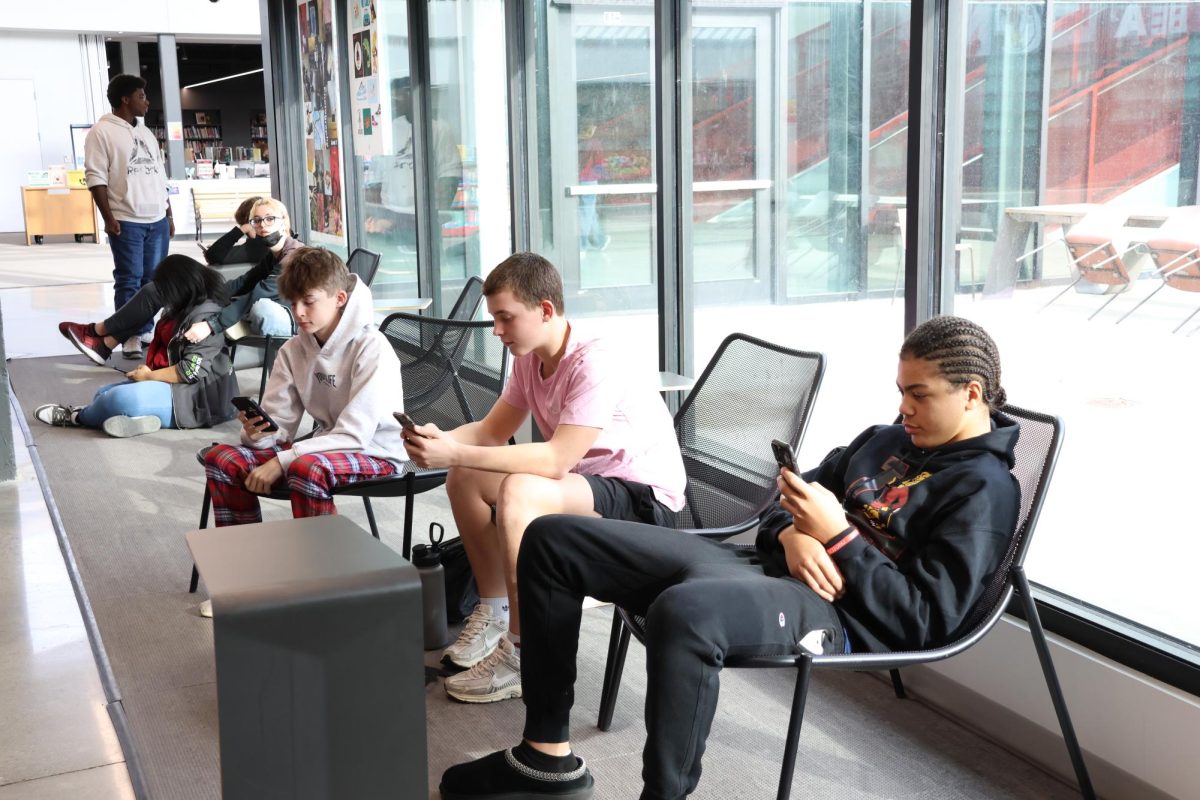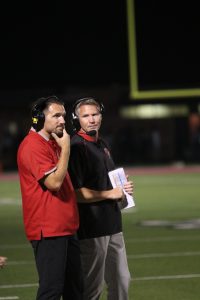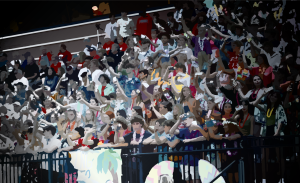Taking a Knee
Band members explain why they began to kneel during national anthem
Protest — Two members of the Lawrence High School marching band kneel during the national anthem before a football game Friday, Oct. 6, 2017. Photo courtesy of the Lawrence Journal World.
October 19, 2017
At least five marching band students and one cheerleader knelt while playing the national anthem at the football game on Oct. 6.
Inspired by professional athletes, they knelt against police brutality.
Inez Robinson, a junior mellophone player, began the kneeling because of the recent shooting of a black man by police in Topeka.
“I didn’t really intend to spread a message, it was just a personal kind of stance on police brutality and racial injustice against black Americans,” Robinson explained. “If there were any type of message to be spread, I would just encourage people to just realize that police unjustly target black Americans compared to other people.”
For Robinson, this protest is bigger than just showing solidarity.
“It’s not about [President Donald] Trump, it’s not about the flag or the anthem, it’s about police brutality,” she said. “I don’t see how you can think, ‘Well, the police don’t unjustly kill only black people, they’re good people,’ or something like that. It’s just black or white for me. You either support it, or you don’t and you’re racist. My voice has run thin at this point, trying to explain and educate or ask, ‘Why don’t you want to explain why it’s disrespectful?’ or anything like that. People can Google it. Do your own research.”
Senior Rollin Love, a clarinet player, also took a knee at the game.
“I believe it is important to stand in solidarity with Colin Kaepernick and his protests,” Love said. “It’s about police brutality in the US and how goes ignored by the general population, so if I kneel here in Lawrence, it humanizes the situation for people and brings it to the forefront of their attention.”
Love hopes awareness will bring change.
“The protest is not about disrespecting the flag or the Star Spangled Banner or anyone who’s in military service,” Love said. “We’re kneeling because we’re not going to support a false patriotism for a country that doesn’t respect our existence.”
Chisato Kimura, a senior mellophone player, participated in the protest during the game. She wishes she could’ve knelt during the homecoming game when she was a court nominee, but nominees were not allowed on the field.
“I think I want to say there are different ways of respecting the country, but we all live here and the country should be respecting us and trying to protect the people as well,” Kimura said. “When the country fails to protect its citizens and is part of the problem of police brutality and racism and oppression, how do we respect that country and how do we respect that flag? I think that’s the point.”
Kneeling has occurred in national, college and youth sports and activities.
“I think that the overall movement will call to more attention why we’re kneeling, which is the police brutality, the oppression, the discrimination that people of color, especially African Americans, face,” Kimura said. “I hope that there is a political change and a change in the system so that police officers aren’t taught to just shoot, straight on the spot, and stuff like that.”
Some parents were against the kneeling, and some even believed students who knelt shouldn’t be allowed to play. They said it was disrespectful, particularly to those who served in the military and to the flag.
“First Amendment rights are a thing so if you actually believe in the country that you’re standing for, you should also believe in First Amendment rights and 100 percent be supporting any form any activism or any freedom of speech because that’s exactly what these people should be standing for,” Kimura said.
One cheerleader, junior Abby LaTessa, also knelt during the anthem. She said she wants more people to be aware of issues going on in the nation and dismisses detractors.
“It’s not affecting you, me sitting on my knee, so it’s really not a big deal,” LaTessa said. “Maybe they should be more educated and put to light about what’s going on, and maybe they would find a reason to kneel, too. Whatever your opinion is, don’t get mad at me. Just let me have mine; you can have yours.”



